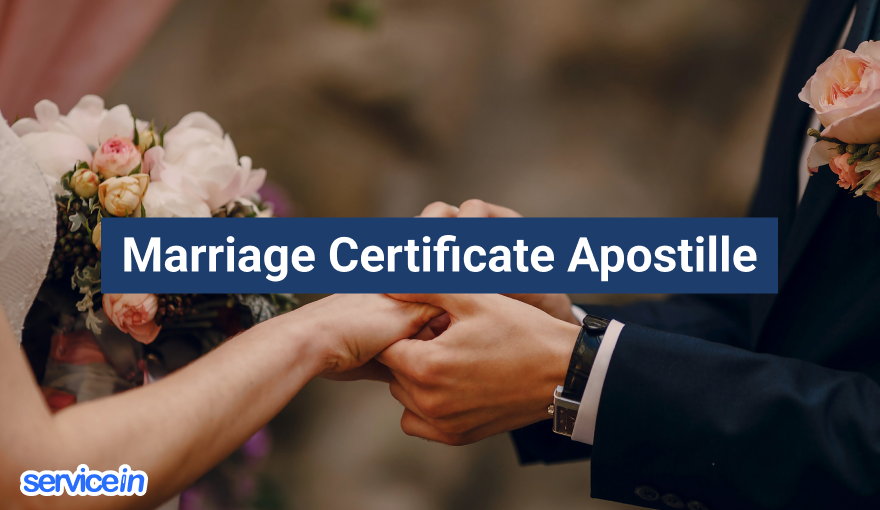Why do we need a Hague Apostille for a U.S. marriage certificate?
Well, other countries might not recognize marriage certificates issued in the United States because there’s no direct way to verify their authenticity. So, if you got married in the U.S. and wish to use your marriage certificate in another country, you need to authenticate it through consular authentication or a Hague Apostille to prove its legitimacy. For instance, if Hannah and her husband got married in the U.S. and are now thriving in the UK and want to buy a house there as a married couple, they must provide a U.S. marriage certificate with a Hague Apostille to the local authorities.
What’s a Hague Apostille? It’s an APOSTILLE certification, also known as “Hague Convention” authentication, established among Hague Convention countries to mutually recognize documents. The country’s foreign affairs department or the supreme court usually issues it, essentially verifying that the document’s signature is legitimate.
This authentication allows the document to be effective in the target country. The key point is that a Hague Apostille only verifies the authenticity of the signature, not the content of the document itself. The difference between Hague Apostille and consular authentication? Both are international document authentications, but the Hague Apostille skips the consulate certification step, making the process simpler, faster, and saving applicants’ time. If you need to use your U.S. marriage certificate in a Hague Convention country, it requires a Hague Apostille; if the target country isn’t a member of the Hague Convention, then you must obtain consular authentication. China is a member of the Hague Convention, so using a U.S. marriage certificate in China requires a Hague Apostille.
To obtain a Hague Apostille for a U.S. marriage certificate, you will need the following materials:
Generally, you need to provide a scan or original of the U.S. marriage certificate and photocopies of the photo pages of both spouses’ passports.
What’s the process?
If it’s a photocopy, you first need to have it notarized by a U.S. notary, then take it to the Secretary of State for a Hague Apostille. For original documents, the process may vary depending on the state of issuance; typically, it involves sending it to the Secretary of State’s office of the issuing state for the Hague Apostille.
How long does it take? For photocopies, it usually takes about 5-7 business days (excluding mailing time), and for original documents, it’s approximately 3-4 weeks (also excluding mailing time), just for reference.

 中文 (中国)
中文 (中国)  English
English 



jesus.huerta
Took 53 days to receive my document sfter it was received by apostille1.com. Its like I mailed it to them and they mailed it to the state secrettary’s office I feel like I could have saved myself the money and mailed it directly to the state secretary. Never again.